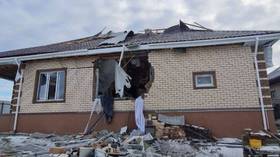Margin calls and trading halt confusion adds to gloom on Russian markets
A torrid week on the Russian markets has seen them lose about 30%, amidst several suspensions of trade. While the financial regulator is trying to avoid the panic on the market, the share sell-off is also putting pressure on highly leveraged Russian comp
Trade on Russia’s RTS and Micex exchanges has been halted over 10 times in recent weeks. And Russia has the worst-performing emerging market, down more than 60% from its highs.
Analyst say that halting trade to prevent further losses is sometimes the right decision – especially when waves of selling threaten to create panic – but they are also wary of what they see as inconsistency according to Tom Mundy, Equity Strategist at Renaissance Capital.
“Its very difficult to guess what the authorities are going to decide to do next. There is a seemingly random set of decisions. There is a base case scenario, they do have rules and regulations. But it does seem very very random right now.”
Russian companies, and leading corporate magnates, have used shares as collateral to borrow funds abroad. And selling related to margin calls has been a major factor adding to the woes on local markets.
If its leverage and toxic assets which is driving the US market down, in Russia it’s loans backed by shares, and their forced sale.
Russia’s richest man – Oleg Deripaska – been forced to hand over his Magna stake to the financial backers of the deal, and this week has also been forced to give up a 10% stake in German construction company Hochtief.
Expert say that the Hochtief shares were being used as collateral on a loan from Commerzbank, and Elina Ribakova, Chief economist at Citibank says de-leveraging will produce further fallout.
“It very hard to say what are the leverage ratio’s among our corporate magnates. There is not enough transparent information, especially at the Holding level. It therefore makes my job very difficult in terms of forecasting how long the leverage will continue. But the de-leveraging will hit the capacity of these companies to continue investing.”
With foreign investors deserting Russia in recent weeks, and Russia’s stockmarkets likely to remain volatile, margin calls, and their impact on stock prices, are expected to remain a key concern for investors and market regulators.












